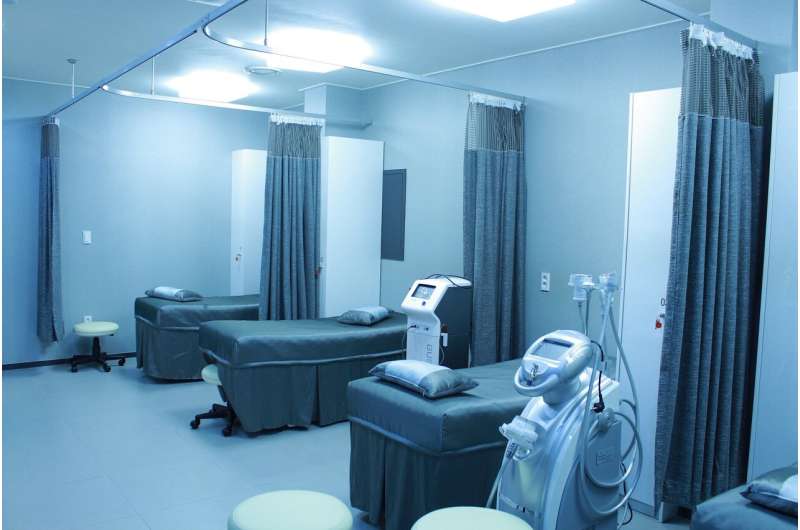Credit: Pixabay/CC0 Public Domain
A randomized controlled trial (RCT) of more than 4,000 people found that the risk for delayed bleeding after polypectomy was significantly reduced among persons who received a cold snare polypectomy. The findings are published in Annals of Internal Medicine.
More than 16 million colonoscopies are performed annually in the U.S., and polypectomy during colonoscopy plays a pivotal role in preventing colorectal cancer. Hot snare polypectomy (HSP) has been conventionally used to remove polyps but is associated with a higher risk of delayed bleeding, post-polypectomy syndrome, or perforation. Previous research on cold snare polypectomy (CSP) demonstrated that CSP was as effective as HSP but more efficient in removing small polyps, but its effect on reducing delayed bleeding has been shown only in high-risk patients.
Researchers from National Taiwan University Hospital conducted an RCT of 4,270 participants who were undergoing polypectomy in six centers in Taiwan. They report that only 8 out of 2,137 persons, or 0.4%, experienced delayed bleeding after CSP. In comparison, 31 out of 2,133 persons, or 1.5%, experienced delayed bleeding after HSP. They also report that only 0.2% of CSP group had emergency service visits compared with 0.6% of the HSP group. The authors show that CSP was also more efficient, with the study's results showing that the time required for polypectomy is reduced by 26.9%.
According to the authors, the findings support the superior safety of CSP over HSP in managing colorectal polyps sized 10 mm or smaller in the general population.
More information: Li-Chun Chang et al, Cold Versus Hot Snare Polypectomy for Small Colorectal Polyps, Annals of Internal Medicine (2023). DOI: 10.7326/M22-2189
Journal information: Annals of Internal Medicine
Provided by American College of Physicians
























